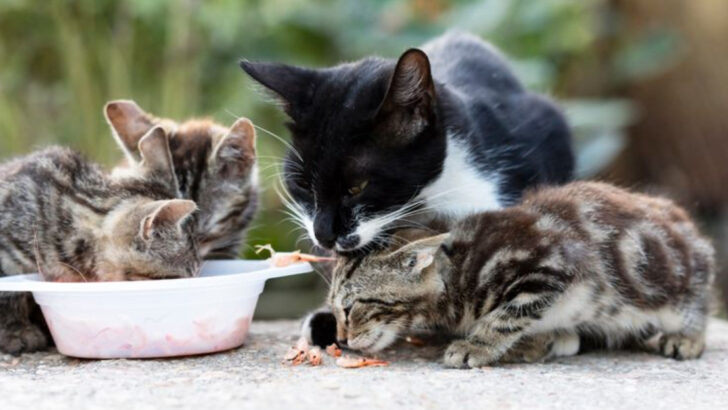Caring for outdoor cats requires careful attention to prevent common mistakes that can affect their health and safety. Whether you’re a new cat parent or an experienced feline enthusiast, avoiding these pitfalls ensures that your furry friend lives a happy and healthy life outside. From providing the right nutrition to ensuring their safety, understanding these errors can make all the difference in your cat’s well-being. Explore these 16 critical mistakes and learn how to give your outdoor cat the best care possible, ensuring they thrive while enjoying the great outdoors.
Ignoring Regular Vet Visits
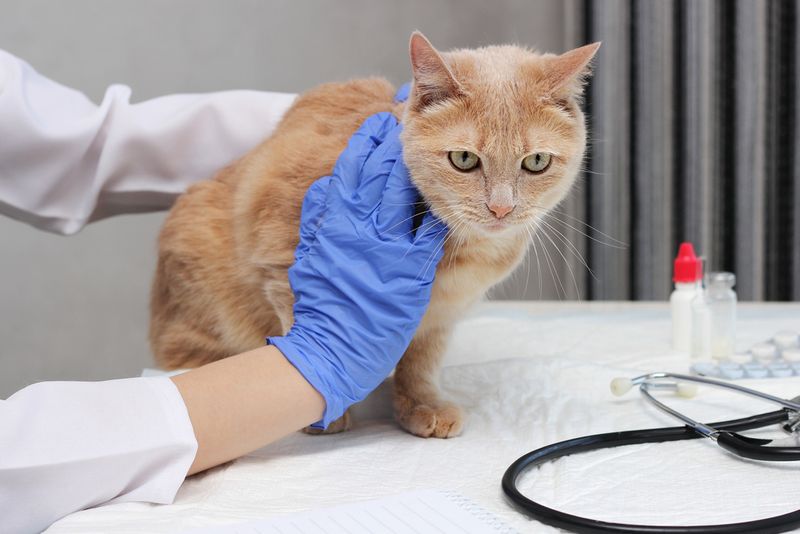
Ignoring regular vet visits can lead to undetected health issues in your outdoor cat. These cats are exposed to various hazards that indoor cats may not encounter. Routine check-ups help catch potential problems early.
A vet can identify parasites, infections, or other medical conditions that might not be immediately visible. Skipping these appointments might save time, but it could cost your cat its health.
Ensuring regular vet visits is a simple yet vital way to keep your outdoor cat healthy and happy. Don’t overlook this essential aspect of feline care.
Neglecting Proper Identification

Neglecting proper identification for an outdoor cat can lead to heart-wrenching situations. A collar with an ID tag is crucial for ensuring your cat’s safe return if they wander too far.
In addition to a collar, microchipping offers an extra layer of security. It provides a permanent form of identification that can’t be lost or removed.
These small steps provide peace of mind, knowing that if your cat strays, they have a way to find their way back to you. It’s a simple safeguard that can make all the difference.
Feeding Inappropriate Diet
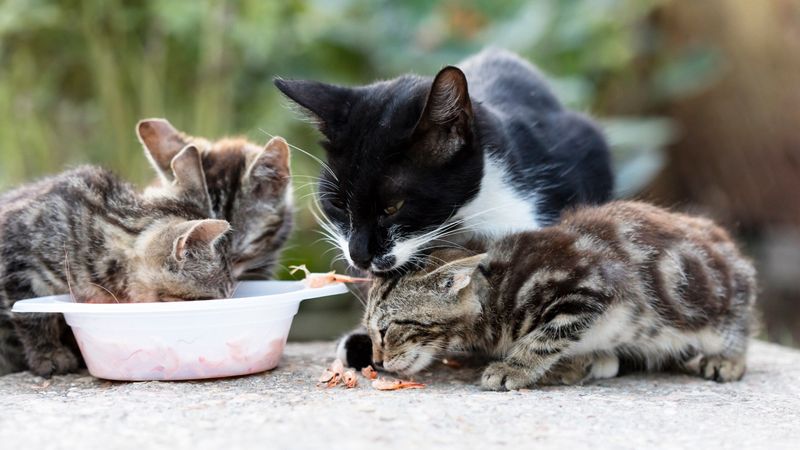
Feeding an inappropriate diet to your outdoor cat can compromise its health. Outdoor cats often require more calories due to their active lifestyle. Offering a diet that’s rich in protein and tailored to their needs is essential.
Avoid foods meant for indoor cats as they may not provide the necessary nutrients. Consult with a vet to determine the best diet plan and prevent nutritional deficiencies.
Understanding your cat’s unique dietary requirements ensures they have the energy and vitality needed for their outdoor adventures. It’s a vital part of responsible cat care.
Overlooking Shelter Needs
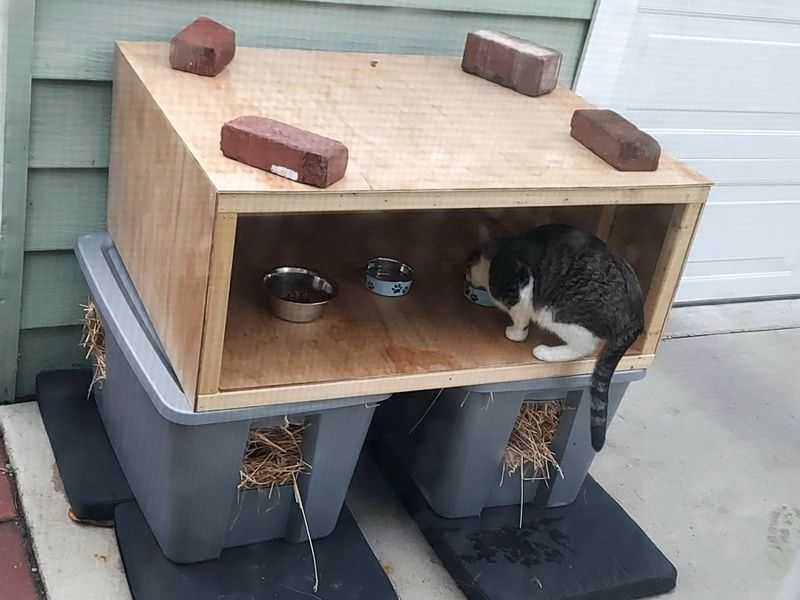
Overlooking the shelter needs of your outdoor cat can leave them vulnerable to harsh weather conditions. Providing a safe, insulated, and weatherproof shelter is crucial for their comfort and safety.
This shelter should offer protection from rain, wind, and extreme temperatures. A cozy, dry place to rest can make a world of difference, especially during colder months.
Taking the time to create or purchase a suitable shelter ensures your cat has a safe haven to retreat to, protecting them from the elements and keeping them healthy and content.
Ignoring Flea and Tick Prevention

Ignoring flea and tick prevention for your outdoor cat is a mistake that can lead to serious health problems. These pests are not just nuisances, but carriers of diseases that can affect your cat’s well-being.
Regular treatments with vet-approved products ensure that your cat is protected from these parasites. Skipping this step can lead to infestations that are challenging and costly to treat.
Prioritizing flea and tick prevention keeps your cat comfortable and healthy, allowing them to enjoy their outdoor life without the constant itch and risk of disease.
Neglecting Exercise and Enrichment

Neglecting exercise and enrichment for your outdoor cat can lead to boredom and obesity. Even though they roam freely, structured playtime and engaging activities are essential for their physical and mental health.
Interactive toys and scheduled play sessions encourage your cat to stay active and sharp. This not only prevents weight gain but also reduces behavioral issues.
A well-stimulated cat is a happy cat. By investing time in providing enrichment, you’re ensuring a balanced lifestyle that keeps your feline friend thriving in their outdoor environment.
Not Monitoring Weather Conditions
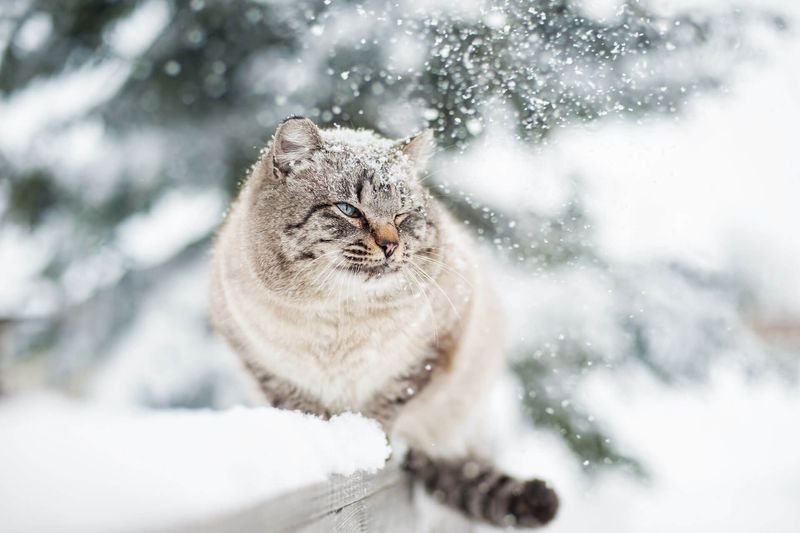
Not monitoring weather conditions can put your outdoor cat at risk. Sudden changes in weather, such as rain or extreme heat, can be harmful if your cat is caught unprepared.
Ensure your cat has access to shelter and water at all times. Consider bringing them indoors during extreme weather conditions to keep them safe.
Being aware of the weather and planning accordingly is a simple yet effective way to protect your cat from unnecessary discomfort and danger. It’s an essential part of outdoor cat care that shouldn’t be ignored.
Failure to Provide Clean Water
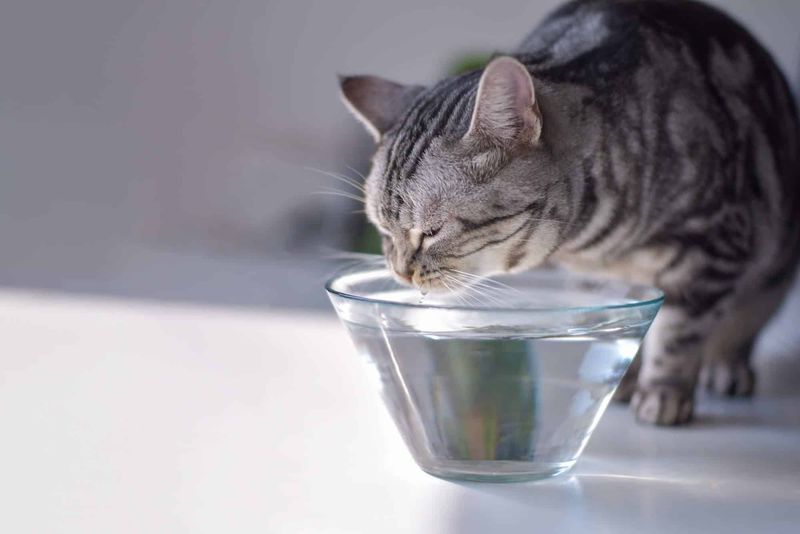
Failing to provide clean water can have severe consequences for your outdoor cat’s health. Cats need access to fresh water to stay hydrated, especially during hot weather or after vigorous play.
Ensure that water bowls are cleaned regularly and refilled with fresh water. Consider multiple locations to make water easily accessible.
This simple act prevents dehydration and related health issues. Providing clean water is a fundamental responsibility that supports your cat’s overall well-being and keeps them healthy and happy in their outdoor adventures.
Overlooking Litter Box Needs
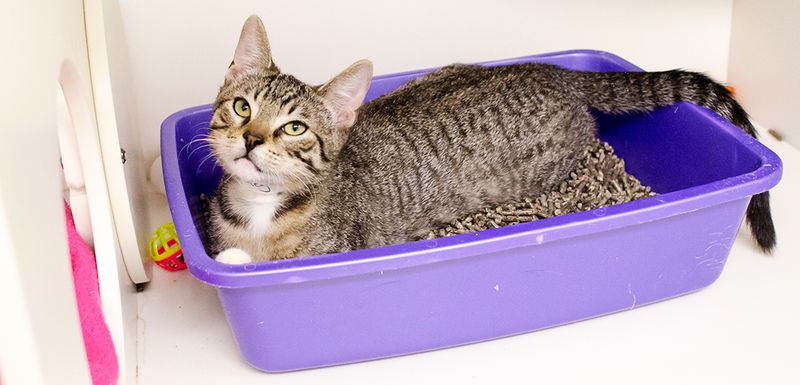
Overlooking litter box needs can lead to undesirable behaviors in your outdoor cat. Even outdoor cats may prefer a clean, easily accessible litter box, especially if the ground is unsuitable for digging.
Providing a litter box ensures that your cat has a designated spot for their needs. It also helps you monitor their health by noticing any changes in their habits.
This consideration promotes hygiene and comfort, ensuring that your cat feels secure and content. Taking care of their litter needs is a simple yet important part of outdoor feline care.
Allowing Unsupervised Roaming
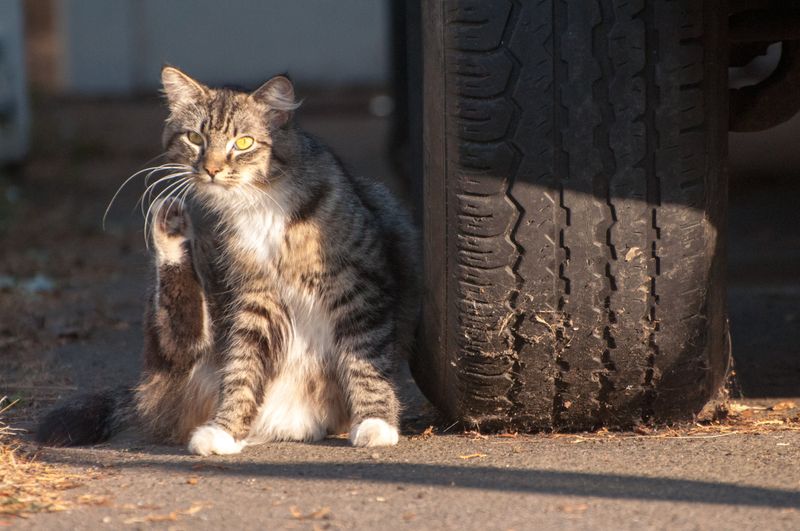
Allowing unsupervised roaming can expose your outdoor cat to numerous dangers. Busy roads, aggressive animals, and unfamiliar territories pose significant risks.
Supervised outings or creating a secure, fenced area can minimize these dangers. It allows your cat the freedom to explore while ensuring their safety.
By being mindful of their surroundings and setting boundaries, you protect your cat from potential harm. This approach balances their need for adventure with your responsibility for their safety, fostering a secure outdoor experience.
Ignoring Socialization Needs
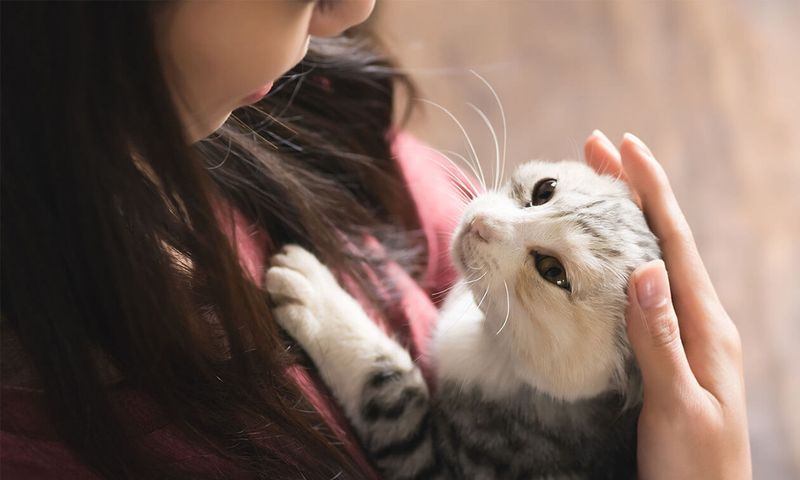
Ignoring socialization needs can lead to loneliness and anxiety in your outdoor cat. Cats are social creatures and benefit from interactions with other animals and humans.
Regular socialization helps your cat develop confidence and resilience. Consider playdates with other friendly cats or spending quality time bonding with them.
This social engagement enriches your cat’s life, providing mental stimulation and emotional well-being. Recognizing and nurturing their social needs contributes to a happier, well-adjusted feline companion who thrives in their outdoor environment.
Not Addressing Territorial Conflicts
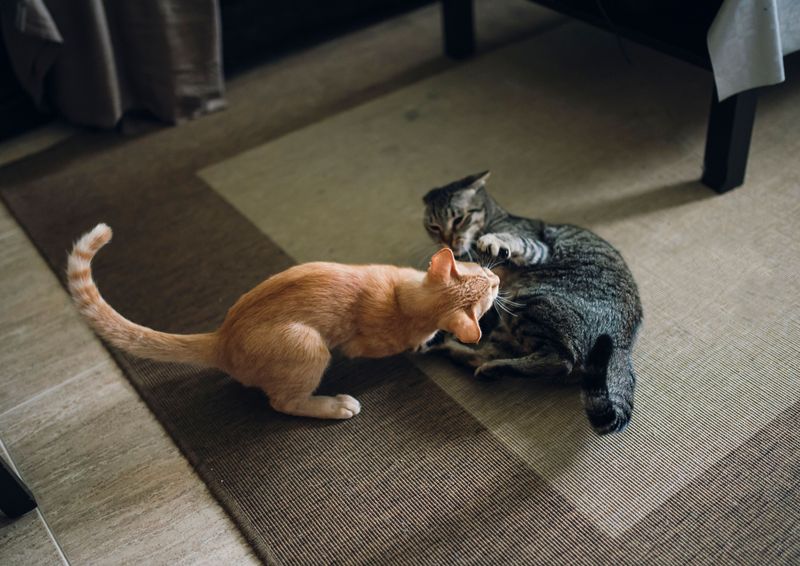
Not addressing territorial conflicts can cause stress and injury to your outdoor cat. Encounters with other cats can lead to fights, resulting in wounds and infections.
Observe your cat’s behavior and intervene if conflicts arise. Providing multiple escape routes and safe spaces helps diffuse tensions.
Taking proactive steps to manage territorial disputes ensures your cat’s safety and peace of mind. It fosters a harmonious environment where your cat can roam without fear, maintaining a balance between independence and security.
Overlooking Grooming Needs
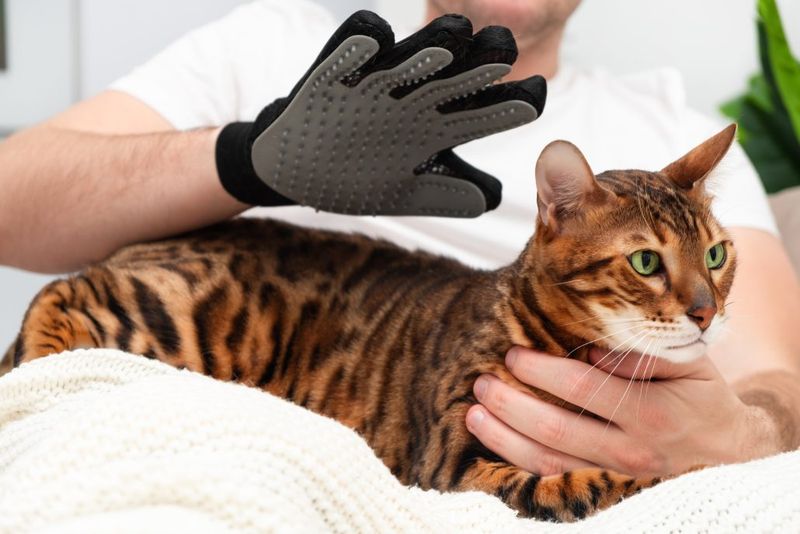
Overlooking grooming needs can lead to matting and skin issues in your outdoor cat. Regular grooming helps maintain a healthy coat and prevents discomfort.
Brushing removes dirt, tangles, and loose fur, reducing the risk of hairballs and promoting circulation. It also provides an opportunity to check for parasites or injuries.
Investing time in grooming strengthens your bond with your cat and contributes to their overall well-being. It’s a pleasurable and rewarding routine that keeps them looking and feeling their best.
Not Providing Enough Climbing Opportunities
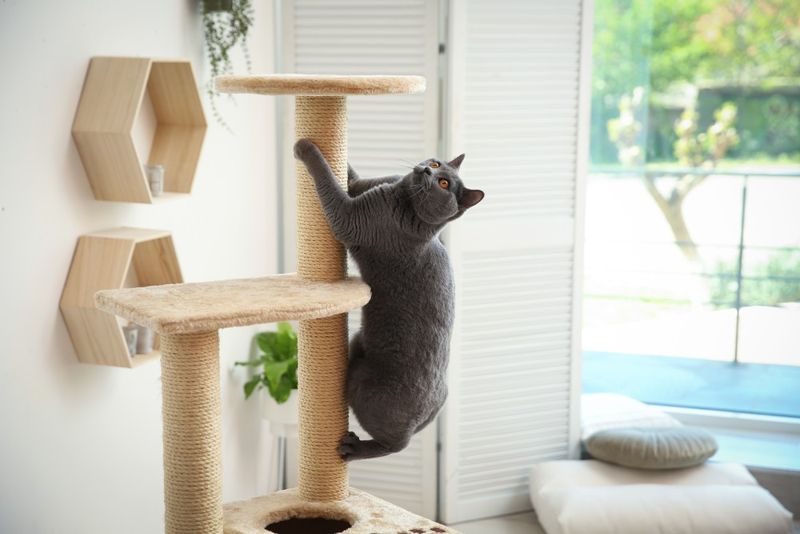
Not providing enough climbing opportunities can limit your outdoor cat’s natural instincts. Cats love to climb, and it offers exercise, entertainment, and a sense of security.
Ensure your garden has trees or structures that encourage climbing. It allows your cat to explore its surroundings from a safe vantage point.
Supporting their climbing habits keeps them active and engaged, enhancing their outdoor experience. It’s a simple way to cater to their adventurous spirit and ensure they enjoy their natural habitat to the fullest.
Failure to Train and Set Boundaries
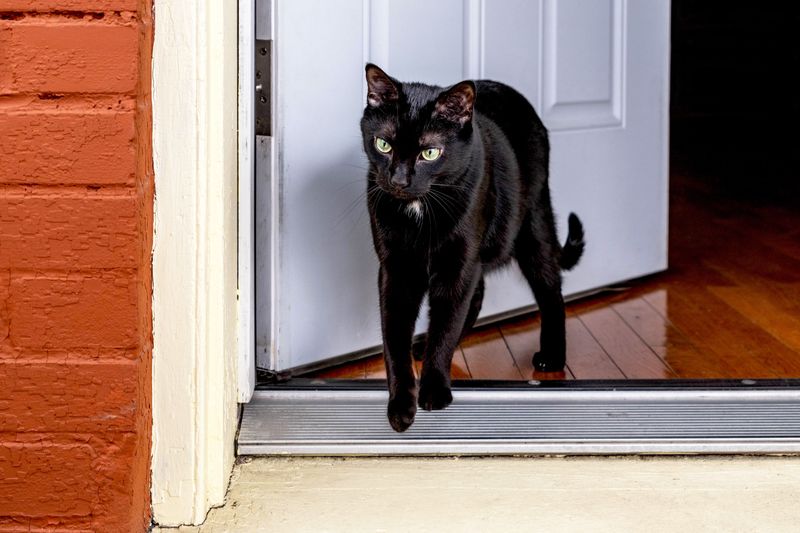
Failure to train and set boundaries can lead to unruly behavior in your outdoor cat. Simple training techniques enhance communication and establish ground rules.
Teaching commands like ‘come’ or ‘stay’ provides control and safety. Positive reinforcement fosters a respectful relationship between you and your cat.
Setting boundaries encourages responsible behavior and ensures a harmonious coexistence. It’s a valuable investment in your cat’s development, promoting a well-mannered and happy outdoor companion.
Ignoring Health Changes

Ignoring health changes in your outdoor cat can have serious consequences. Cats are masters at hiding illness, so subtle signs like lethargy or changes in appetite may go unnoticed.
Regularly observe your cat’s behavior and consult a vet if something seems off. Early detection of health changes can lead to timely treatment and better outcomes.
Being attentive to your cat’s health ensures they lead a vibrant and active outdoor life. It’s a vital part of responsible cat ownership that keeps your feline friend thriving.

